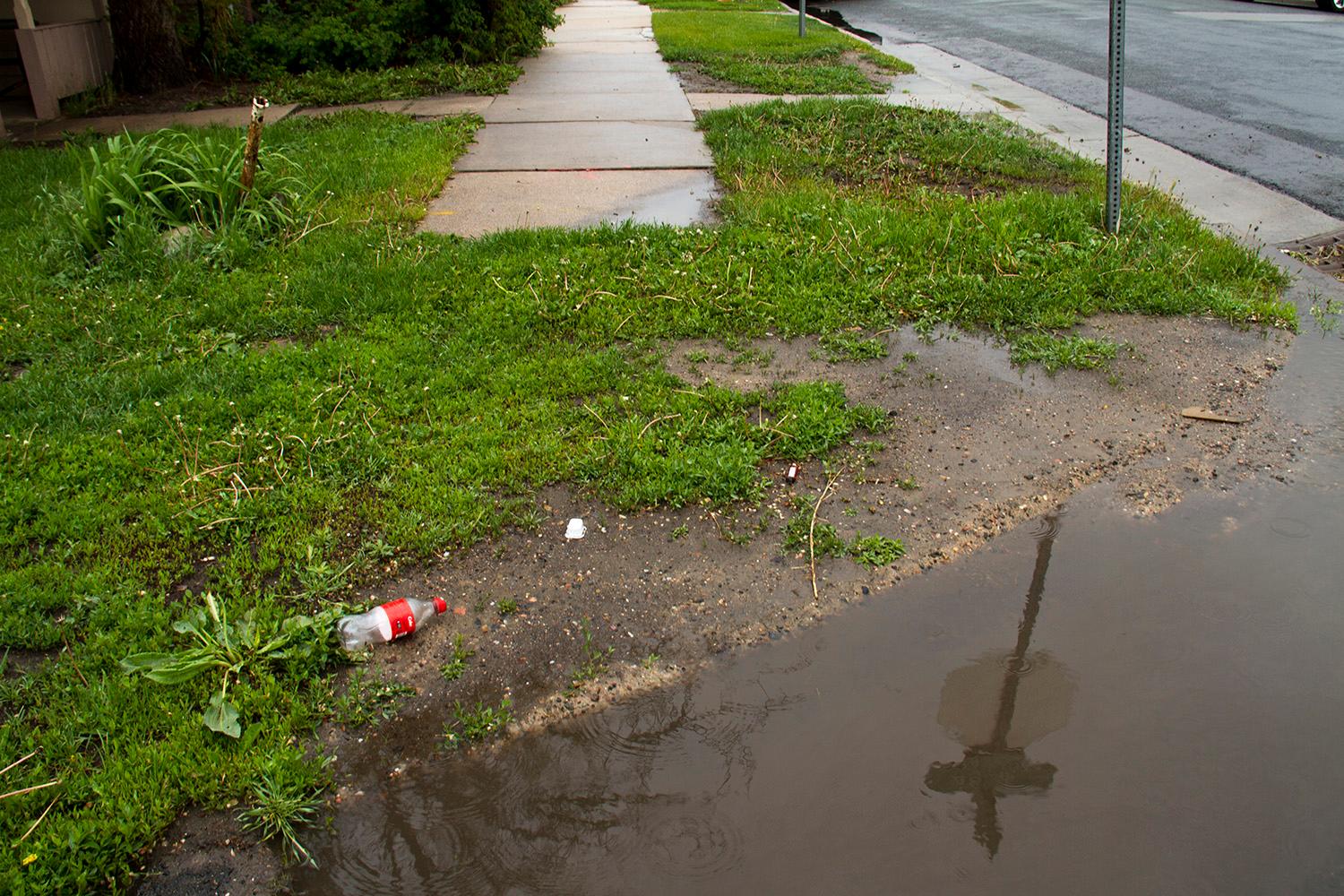
The mayor's budget was pretty good, but it could have been better. Next year, the Denver City Council should push harder to address long-neglected neighborhood infrastructure like sidewalks.
That was the message from several City Council members Monday before they voted unanimously to approve the $1.9 billion budget proposed by Mayor Michael Hancock.
"What good is a budget if we can’t even pave a block of sidewalk for 40 years?" Councilman Paul Lopez asked, just after calling the mayor's budget "pretty comprehensive. "We need to be a little stronger with our ownership of the budget on council. We need to not limit ourselves unnecessarily."
Hancock agreed to $2.2 million in requests from City Council members, with more than half of that going for two new composting routes on top of the three that already were in the budget. Hancock also agreed to spend $500,000 to help business districts on East Colfax Avenue improve pedestrian safety and make the streetscape more attractive, $500,000 to install traffic calming devices and other improvements for pedestrian safety outside the downtown core, $57,500 to bring back the Denver Urban Gardens seed distribution program and $50,000 to expand the Urban Arts Fund.
Not included: $125,000 to install a sidewalk on a segment of West Florida Avenue. That's what prompted Lopez's comment.
The City Council could have pushed through amendments to the budget with the support of nine of the 13 members, but in recent years, council members haven't done that route. Maybe next year, they will.
Expect sidewalks to be a big area of focus next year. The city has a Vision Zero project that aims to reduce traffic fatalities -- including pedestrians hit by cars -- to zero, yet in many parts of the city, sidewalks are incomplete or very narrow or both, forcing many people to walk in the street.
Councilman Paul Kashmann held off on a budget amendment a few weeks ago because the mayor's office has promised to look for ways to help low-income homeowners pay for sidewalks in front of their homes, which are supposed to be the property owners' responsibility. The mayor's budget includes $2.5 million to install sidewalks on city-owned property where they are missing.
"All of us at some point in our day are pedestrians," Kashmann said. "... We need to be a lot more aggressive in making this city safe for everyone to move around."
Several council members said they also want the city to hire even more officers in the future. The approved budget includes money for 48 new officers and more vehicles so that fewer officers double up on patrol. However, Lopez said that having officers ride and work in pairs is an important accountability tool.
Councilman Rafael Espinoza said it's important for the community to see officers outside of emergency situations.
"If we can have more non-emergent contact with our officers, we’re all better for it," Espinoza said.
Council President Albus Brooks said the large size of the city budget -- $1.2 billion just for the general fund -- makes it seem like the city has tons of money to spend, but about 75 percent of the budget goes to personnel. There really isn't that much money to play with, and the city has a policy of maintaining a 15 percent reserve to use during an emergency or economic downturn.
However, he suggested City Council make its budget priorities clear at the retreat in January so that they can be incorporated early in next year's budget planning.
In a press release issued after the vote, Hancock thanked the council for approving the budget.
“We have important needs in our growing city, and this budget thoughtfully tackles many of the challenges that our residents are facing today, especially affordable housing, transportation and mobility and public safety.
“But more than that, this budget strives to bring prosperity and opportunity within everyone’s reach. This budget adopted tonight is a roadmap for responsibly focusing our work on the issues that we most care about and will do the most good securing a bright future for every resident. That is something we can all be proud of working toward.”
- 48 new police officers, with 16 of them to focus just on patrolling the 16th Street Mall
- 37 new employees, an entire road crew, just to work on arterial and collector streets, at a cost of $7 million
- Extended hours through Labor Day for five city pools: Barnum, Berkeley, Congress, Eisenhower and Curtis
- $2.2 million to complete (or very nearly complete) the transition to automated carts for garbage pickup
- $2.5 million for additional bike infrastructure
- 30 additional permitting staff to speed up the process of getting building permits
- $15 million for affordable housing out of the general fund, with $10 million of that coming from the new permanent fund
- 23 new child welfare case workers and 21 caseworkers in adult and family services













